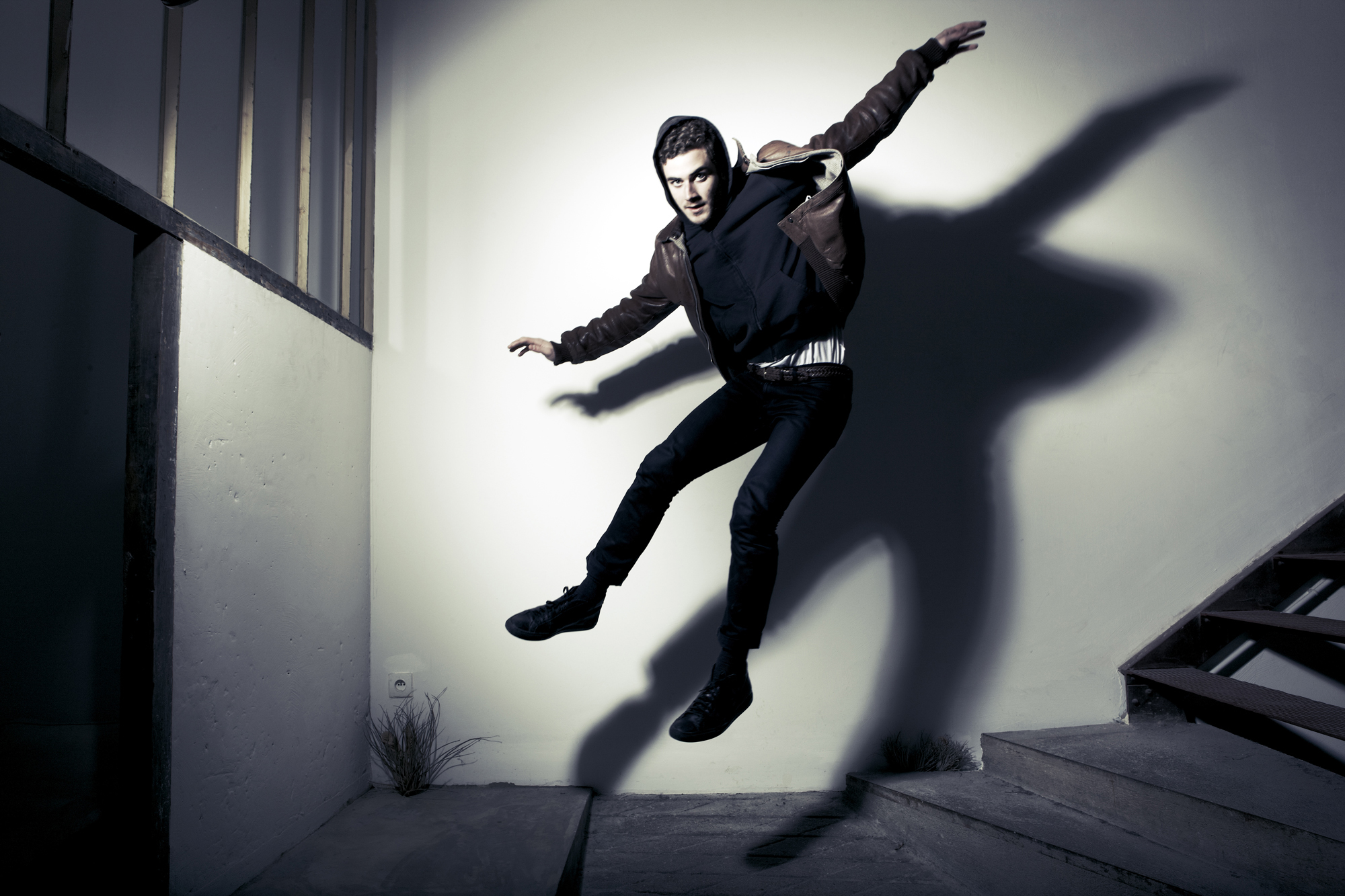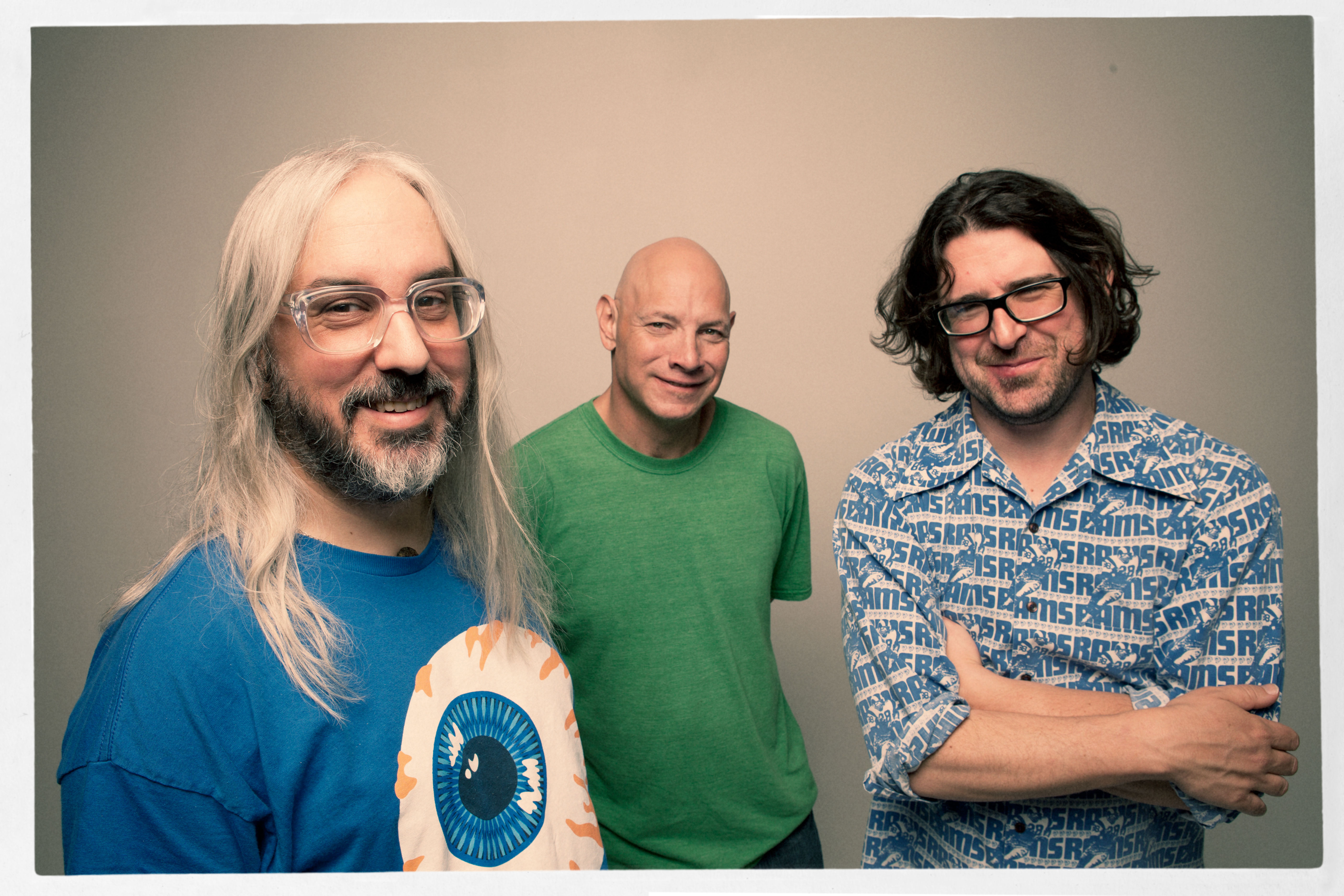
Chilean-American electronic musician Nicolas Jaar lured the crowd with irresistable dance numbers.
Correction: The original version of this article contained an error and a confusing sentence. The punk band Desaparecidos quickly had the crowd, with smiles on their faces, singing along desperate lyrics such as, “Yeah one more mouth full and we will be happy then!”
Since its inception in 2004, FYF Fest has made quite a change. The brainchild of then 18-year-old L.A. native Sean Carlson, FYF Fest has gone from an Echo Park, local-band music party to a full-on, two-day event whose roster reaches well beyond the borders of Los Angeles to include the likes of seminal Swedish hardcore band Refused and the U.K.’s electronic prodigy James Blake.
The festival is held during late summer in the middle of downtown’s L.A. State Historic Park, so the heat and dust swirls can quickly wear down the endurance of the typical showgoer. Given FYF’s four stages, conflicts abounded, meaning any review written by a single person is bound to have several gaping holes (this review won’t touch on Dam Funk, Beirut, Yeasayer or David Cross).
Critics of FYF Fest have rightly noted its particular affection for garage-rock and electronic artists, but within that narrow niche lies an overflow of talent.
Day One
The members of Brooklyn-based punk band The Men eased into the festival mainly by playing songs from their latest album “Open Your Heart,” which invited the ample aggression of moshers (one man, clad in a green tank top, calmly left the crowd sporting a bloody nose). Cleveland, Ohio’s Cloud Nothings ““ originally the solo work of a teenage Dylan Baldi, but now a regular band ““ showed how far it had come from its more gentle, melodic, lo-fi indie rock beginnings. The bubblegummy punk of its first album had turned into a darker-hued iteration of teenage angst with 2012’s “Attack on Memory”: the highlight of the FYF set being a nearly doubled-in-length version of “Wasted Days,” with its noxiously good and persistent bass line and a whole lot of addicting guitar noise to fill it out. The crowd screamed along, “I thought / I would be more / than this” almost ad infinitum.
Hardcore Canadian band Fucked Up ramped up the intensity with songs such as “The Other Shoe,” “I Hate Summer” and “Son the Father,” releasing a veritable dust storm at the Spring Street Stage. In preparation, some moshers took off their T-shirts and wrapped them expertly around their faces. Others pulled bandanas up from around their neck to shield their nose and mouth.
Again, the dust is no joke; some people passed out in the middle of the pits, unable to breathe with the overwhelming dust, or else coughed and sneezed dirt for hours afterward. The crowd, in short, went nuts, for both the band’s energetic playing and for the affable antics of frontman Pink Eyes (Damien Abraham). It was hard not to be utterly charmed by Mustard Gas (Sandy Miranda), the band’s awesome female bassist (as if those three words have never existed together before) who donned a cute lacy white dress onstage.
Next, the guitar rock died down to make way for the gauzy and glassy synth-pop of Chromatics, who largely played from its highly regarded new album “Kill For Love.” The music was beautiful, but the performance was a bit hard to focus on sometimes, maybe because the show added little dynamism to the band’s recorded sound. Maybe, though, after a long, hot afternoon, a low-key set was necessary.
The highlight of Saturday, arguably, came with James Blake’s utterly stunning live performance, accompanied by a guitarist and drummer. Blake is without doubt exceedingly talented, but his set, which swelled just as the sun set and a chill rolled in, left many speechless. Not only were the instrumentals perfectly constructed and blissfully weird, but his voice, whether bent and pitch-adjusted as in “CMYK,” or wispy and delicate as in “Lindisfarne,” was bone-chillingly gorgeous. Highlights: an extended cover of Feist’s “Limit to Your Love,” a flawless cover of Joni Mitchell’s “A Case of You” and the closer “The Wilhelm Scream.”
When Blake’s set ended, college-favorite Sleigh Bells was still blaring fist-pumping chant-alongs from the Main Street Stage. They were quickly followed by M83, who sounded very “arena rock” and garnered a large following after the popularity of songs like “We Own the Sky” and the ubiquitous “Midnight City.”
Then came the day’s ““ or the festival’s ““ biggest star: Refused, all the way from Umea, Sweden, newly emerged from a nearly 15-year hiatus. One spectator quipped, very accurately, that vocalist Dennis Lyxzen was like “the Michael Jackson of hardcore” ”“ Lyxzen (who’s known for abstaining from drugs and alcohol, it should be added) threw himself into elaborate dances, swung the mic like a lasso, balanced on top of stacked speakers, climbed and suspended himself from the stage supports and offered sincere and often hilarious inter-song commentary.
Refused mainly played songs from its most influential and last album “The Shape of Punk To Come,” including the crowd favorite “New Noise,” which had everyone screaming “We dance to all the wrong songs / we enjoy all the wrong moves!” But it also treated its fans to a couple songs from “Songs to Fan the Flames of Discontent,” namely “Rather Be Dead” and “Coup D’etat.” What makes Refused so special is that it tempers the aggressiveness of its sound and political message (scrawled on the kickdrum were the words “Free Pussy Riot!!!”) with an actual love and earnestness. The mosh pit, though it kicked up several small tornados, was not vicious; everyone in it loved Refused and its music, so why beat up a fellow brother (or sister)?
When day one came to a close just after midnight, the park cleared out quickly, with people making the long trek to their cars or to the Metro rail, ready for some rest so they could do it all again the next day.
Day Two
For many, the theme of FYF Fest’s day two was “throwback,” no condescension intended. Saddle Creek Records darlings of yore Cursive, The Faint and Desaparecidos played to manically devoted fans, mouthing still-memorized lyrics.
Cursive, helmed by Tim Kasher, blasted the audience with its distinct sound: highly literate lyrics, vocals that sound equally good crooned or screeched, the deep and solemn thrum of the cello, and everything loud, loud, loud. Atlas Sound, the side project of Deerhunter’s Bradford Cox, drew a huge crowd at the tiny Hill Street Stage with the trippy psychedelic allure of tracks like “Parallax” and “Te Amo.”
Dancing older couples and newer fans alike adored those godfathers of alternative rock Dinosaur Jr., who arguably put on the loudest performance of the entire weekend. Many concertgoers near the stage wore ear plugs; even those toward the back of the crowd could barely hear after the set ended.
They opened with “Thumb” and made their way through “Back to Your Heart” and “Feel the Pain.” When frontman J. Mascis announced he’d be playing a Deep Wound cover and that it would be one of the set’s “slower” songs, one couple in the audience looked at each other knowingly. “Ready to thrash?” the guy asked, right before the guitars roared. Before launching into songs from “You’re Living All Over Me,” the band played its idiosyncratically distorted yet melodic cover of The Cure’s “Just Like Heaven.”
Desaparecidos, the punk band of Bright Eyes’ Conor Oberst and affectionately known as “Desa,” opened big with “Greater Omaha” and quickly had the crowd, with smiles on their faces, singing along desperate lyrics such as, “Yeah one more mouth full and we will be happy then!” Later, the band did a great cover of The Clash’s “Spanish Bombs,” which Oberst called one of his favorite songs.
Over at the next stage, or “The Tent,” Chilean-American electronic musician Nicolas Jaar (known also as “Nico Jaar”) lured the crowd ““ both men and women ““ in with an irresistible DJ set. The entirely danceable numbers featured his trademark “slower” (lower number of beats per minute) sound ““ or at least slow relative to most house music. Smoke of varying scents muffled the nose, but the thick, deep beats, often tinged with detectable Latin influences, liquefied the whirling crowd, which rarely, if ever, stopped dancing.
Ultimately, it’s hard to complain about FYF being too long as a two-day music event, because excellent bands played on both days; it’s easier to complain about having less energy on the second day because of the heat and mugginess of the first.
This year seems to mark a turning point for the festival ““ will it take off like Coachella and lure (even) bigger bands and crowds to downtown L.A. every summer? Will it start offering layaway if prices go up? Will it expand to two weekends? Will it become unmoored from its DIY roots and become an unrecognizable Coachella behemoth? It seems unlikely.
For now it seems that FYF is enjoying a success defined not by millions of dollars made, but by numbers of attendees who walked away having found a favorite new band or having finally seen a long-time idol, with dirt in their throats, but smiling nonetheless.
